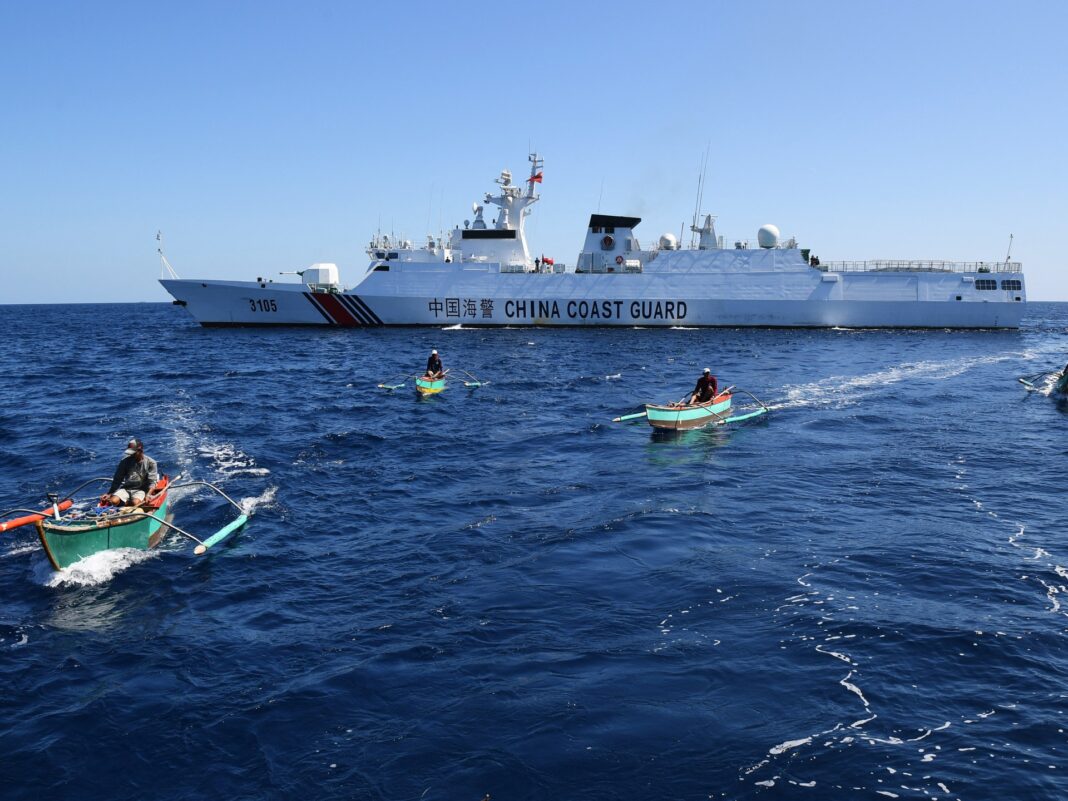Philippines files new legal submission before the UN, asserting its own entitlements while challenging China’s claim.
New maritime rules issued by China that allow its coastguard to detain foreigners for trespassing in the disputed South China Sea have taken effect – but their international legitimacy is being questioned by neighbouring countries.
China claims almost the entirety of the South China Sea, brushing aside competing claims from several Southeast Asian countries including the Philippines and a 2016 ruling by an arbitration tribunal in The Hague, which declared that its stance had no legal basis.
The Chinese government has been deploying the country’s coastguard and other boats to patrol the waters it claims as its own, and has turned several reefs into militarised artificial islands. In recent years, Chinese and Philippine vessels have had a series of confrontations in disputed areas that have raised fears of a wider conflict.
From Saturday, China’s coastguard can detain foreigners “suspected of violating management of border entry and exit”, according to the new regulations published online.
Detention is allowed for up to 60 days in “complicated cases”, they say. “Foreign ships that have illegally entered China’s territorial waters and the adjacent waters may be detained.”
Philippine President Ferdinand Marcos Jr last month called the new rules a “very worrisome” escalation. And on Saturday, the Philippines’ Department of Foreign Affairs announced that it has submitted to the United Nations in New York legal filings asserting its own “maritime entitlement” under the UN maritime rules to an extended continental shelf on parts of the South China Sea, which it refers to as the West Philippines Sea.
The Philippines has accused the Chinese coastguard of “barbaric and inhumane behaviour” against Philippine vessels after coastguard vessels used water cannon against Philippine boats multiple times in the contested waters. There have also been collisions that injured Filipino soldiers.
Philippine military chief General Romeo Brawner told reporters on Saturday that authorities in Manila were “discussing a number of steps to be undertaken in order for us to protect our fishermen”.
Philippine fishermen were also told “not to be afraid, but just to go ahead with their normal activities to fish there in our Exclusive Economic Zone”, ignoring Beijing’s new rules, Brawner said.
The Group of Seven (G7) bloc of powerful economies on Friday also criticised what it called “dangerous” incursions by China in the vital waterway, where Vietnam, Malaysia and Brunei also have overlapping claims in some parts.
Trillions of dollars in ship-borne trade passes through the South China Sea annually, and huge unexploited oil and gas deposits are believed to lie under its seabed, though estimates vary greatly.
The sea is also important as a source of fish for growing populations.
China has defended its new coastguard rules. A foreign ministry spokesman said last month that they were intended to “better uphold order at sea” while the Chinese defence minister warned this month that there were “limits” to Beijing’s restraint in the South China Sea.
China has also been angered in the past by United States and other Western warships sailing through the South China Sea.
The US Navy and others undertake such voyages to assert the freedom of navigation in international waters, but Beijing considers them violations of its sovereignty.
Chinese and US forces have had a series of close encounters in the South China Sea.







